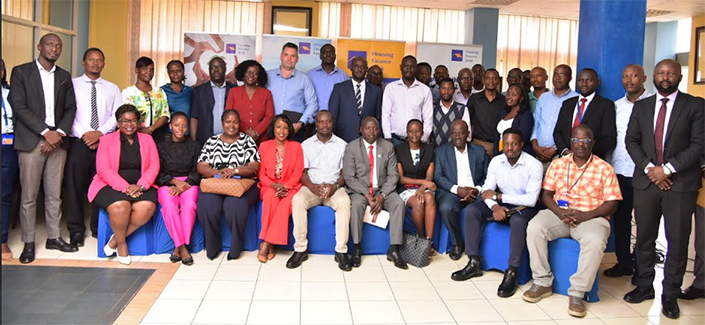HFB business clinics 3rd edition focuses on tourism sector
The event featured interactive sessions with industry specialists, case studies of successful tourism ventures, and practical guidance on leveraging both traditional and innovative financing options.
Amos Wekesa delivering his keynote speech at the event. (Courtesy)
________________
Entrepreneurship in Uganda is a journey of ambition, resilience, and constant learning. Recognising both the challenges and opportunities this path presents, Housing Finance Bank hosted the 3rd edition of its Business Clinics, a platform where entrepreneurs are supported, connected, and equipped to navigate the complexities of business growth.
The edition, held on Tuesday, focused on Financing Growth in Uganda’s Tourism Sector, a critical industry driving economic development, job creation, and international investment.
Entrepreneurs attending the clinic benefited from tailored financing solutions, engaged in expert-led discussions, and accessed invaluable networking opportunities designed to enhance business resilience and foster long-term growth in Uganda’s tourism landscape.
The event featured interactive sessions with industry specialists, case studies of successful tourism ventures, and practical guidance on leveraging both traditional and innovative financing options.
Some of the participants pose for a photo moment after the event. (Courtesy)
Participants left with actionable strategies on expanding operations, optimising resources, and navigating regulatory frameworks, all tools essential for sustaining growth in a competitive market.
Angela Ndawula, Head Business and Institutional Banking at Housing Finance Bank, emphasised the importance of inclusion and the untapped potential of Uganda’s tourism industry.
She noted that the bank serves a wide range of clients, from micro-entrepreneurs to established companies, and highlighted the sector’s economic significance.
“Tourism is an exciting sector, but we must make it a business that generates wealth for Uganda. Our country’s tourism potential is unmatched,”. Ndawula said.
She further highlighted the sector’s economic impact, explaining that it contributes approximately 5% to Uganda’s GDP, supports nearly 600,000 direct jobs, and benefits over 1.5 million people indirectly through its value chain.
“Housing Finance Bank is committed to supporting this growth. Now is the time for all our partners, from micro-entrepreneurs to established businesses, to seize these opportunities and drive the sector forward.”
The keynote speaker, Amos Wekesa, shared insights from his experience in the tourism industry, highlighting the broader impact of tourism beyond GDP contributions. He explained that the sector plays a vital role in redistributing income and sustaining local economies, from fuel stations to roadside food vendors.
“I encourage entrepreneurs to advocate for city activities, events, and improved infrastructure, as these drive hotel occupancy and consumer spending,” Mr. Wekesa said. He also applauded
The Manager Sustainability, Dorothy Namutebi, highlighted that sustainability is now a key driver of competitiveness. She shared findings from the Global Travel Survey 2024, noting that 83% of travelers consider sustainable travel important, and 75% plan to travel to more sustainability-friendly destinations in the next 12 months.
Dorothy highlighted that tourism; one of Uganda’s most valuable assets, depends on resources most vulnerable to climate change, including our natural landscapes and cultural heritage.
She underscored the need for sustainability to be central to tourism operations, noting that environmentally responsible practices are critical for the sector’s long-term success.
The Housing Finance Bank Business Clinics continue to demonstrate the bank’s commitment to fostering entrepreneurship in Uganda.
By equipping business owners with financial tools, mentorship, and strategic insights, the bank is actively supporting the growth of resilient enterprises capable of competing locally and globally.